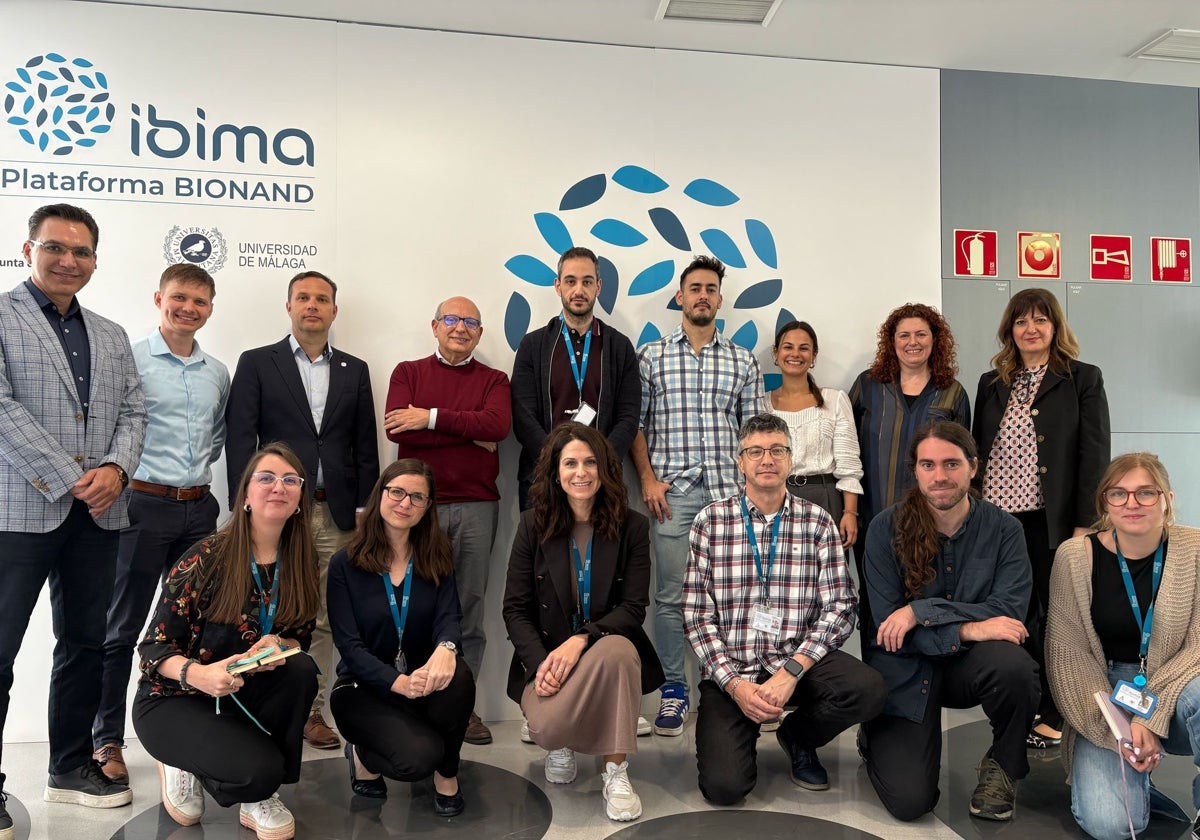Fighting Alzheimer's with carob pods - a European project in Malaga
Coordinated by Ibima as part of an international consortium, the project has researchers at the Regional Hospital in Malaga intervening nutritionally with patients who are already experiencing subjective cognitive decline
What do a carob pod molecule, insulin and cognitive impairment-related diseases such as Alzheimer's and dementia have in common? The answer is not simple, but the relationship between the first two elements of the question posed may help to prevent or, at least, mitigate the onset of these diseases, which can be so distressing for the families and friends of sufferers.
On 24 April Malaga's biomedical research institute and nanomedicine platform (Ibima Plataforma Bionand) hosted the launch meeting of the Nutricia project, a pioneering initiative that brought together researchers from leading institutions such as the Erasmus Medical University of Rotterdam, the Sapienza University of Rome, and the biotech companies Holisum and Euronutra, all members of the international consortium against cognitive deterioration.
The overall initiative will run for three years and is coordinated by Dr Fernando Rodríguez de Fonseca, principal researcher of neuropsychopharmacology at Ibima. The project will analyse the role of insulin resistance (when cells in the human body do not respond adequately to insulin, a hormone whose main function is to facilitate the entry of glucose into cells so that the cells can use it as energy) and metabolic imbalances as key factors in the development of cognitive impairment and brain ageing.
"We are witnessing a paradigm shift in the understanding of the factors that contribute to cognitive decline. Insulin resistance, traditionally linked to type 2 diabetes, is proving to have a direct impact on brain function. With Nutricia we are going to study how we can intervene on this pathway through accessible tools such as nutrition," says Dr Rodríguez.
"Insulin is a hormone that not only acts in muscle, fat tissue or the liver to regulate energy storage and remove glucose from the blood. In the brain, it also regulates neuronal function and vitality, and even the repair, so to speak, of brain tissue," he explains. In this way, it has been found that people with insulin resistance, or rather those in whom this hormone is not effective, "could have a greater association with the onset of dementia and Alzheimer's".
"This hypothesis in turn led to the type 3 diabetes hypothesis, which states that there is a lack of insulin signalling in the brain," a very complex process that leads to glucose uptake. "We know that biochemical mechanisms associated with this insulin signalling are associated with the depositing of proteins that accumulate abnormally in Alzheimer's." One of these proteins, when it really accumulates, causes "neurotoxicity, neuronal death and cognitive impairment," says this lead researcher.
The basis of the European project is, in fact, to identify nutritional elements to make interventions that can modify this cerebral metabolic alteration and achieve a healthier process of ageing. With "Euronutra, a company from Malaga, we researched eight years ago a molecule that is present in the carob pod called D-pinitol. It is capable of activating the insulin signal and correcting it in the brain," says Dr Rodríguez.
"We have already done several studies and we have patents with Euronutra that allow us to protect and exploit the idea that D-pinitol, incorporated into nutrition, could improve insulin resistance and prevent or slow down cognitive deterioration."
At the Regional Hospital, the research team led by Dr Pedro Serrano (head of the clinical neurology unit), is going to sign up patients who consult the neurologist about symptoms of subjective cognitive decline (SCD), or "the feeling that they are losing their memory."
Thus, "we are going to combine a nutritional intervention with D-pinitol together with the usual care given to these people who come with the subjective feeling that they are losing memory." They will be closely followed for two years and certain proteins will be monitored that, if found in the blood, would indicate the onset of Alzheimer's disease. If they take D-pinitol, the accumulation of these proteins would disappear.
A retrospective study will be conducted in tandem in Rotterdam, examining the metabolic history of 18,000 people aged over 30 to see if, when they have had insulin resistance, "their cognitive impairment has appeared". In addition, preclinical models of diet-induced obesity will be studied to analyse the molecular mechanisms that link metabolic dysfunction with neurodegenerative processes, and finally, artificial intelligence (AI) will be applied to pull together all the data obtained.

